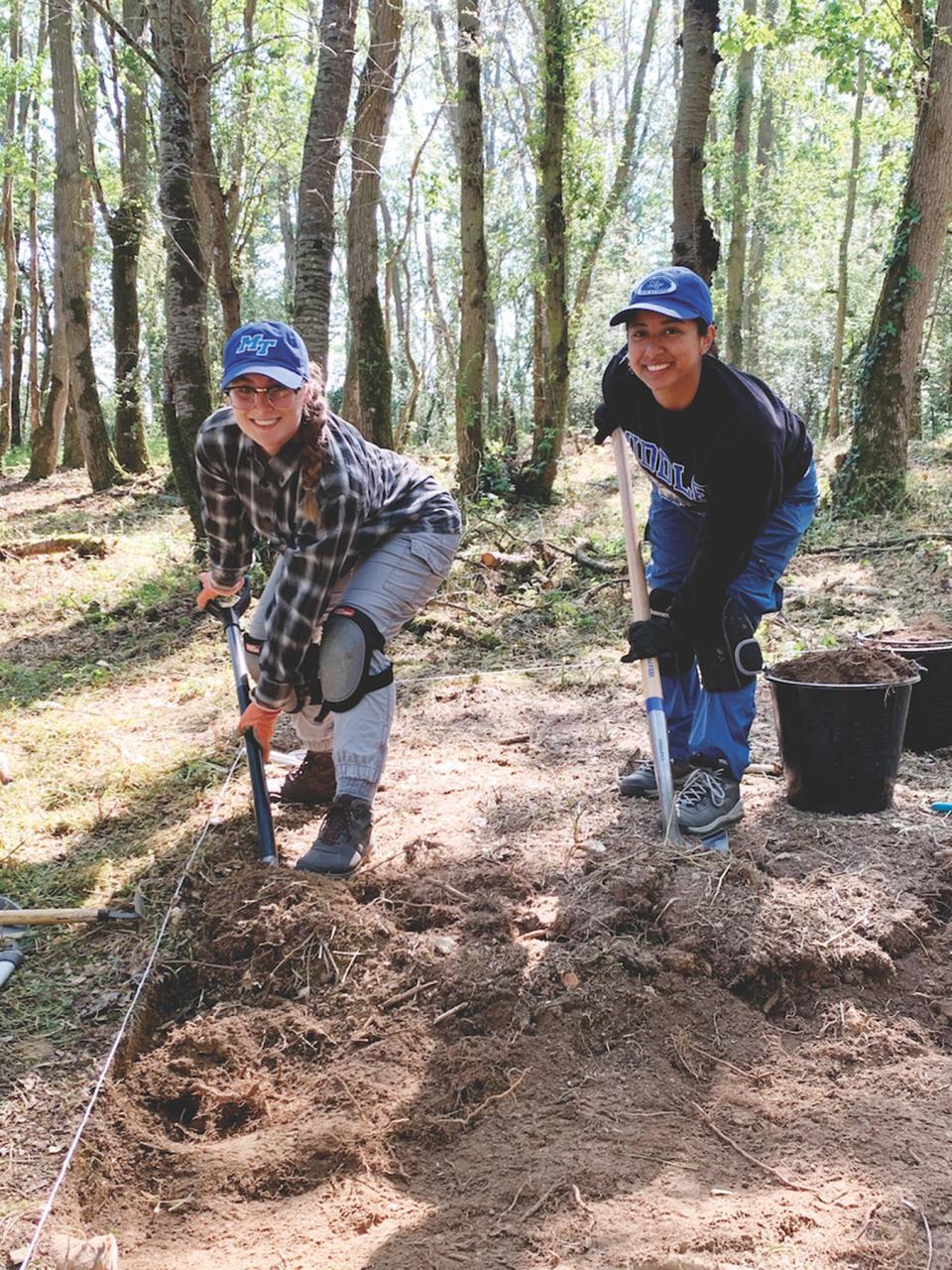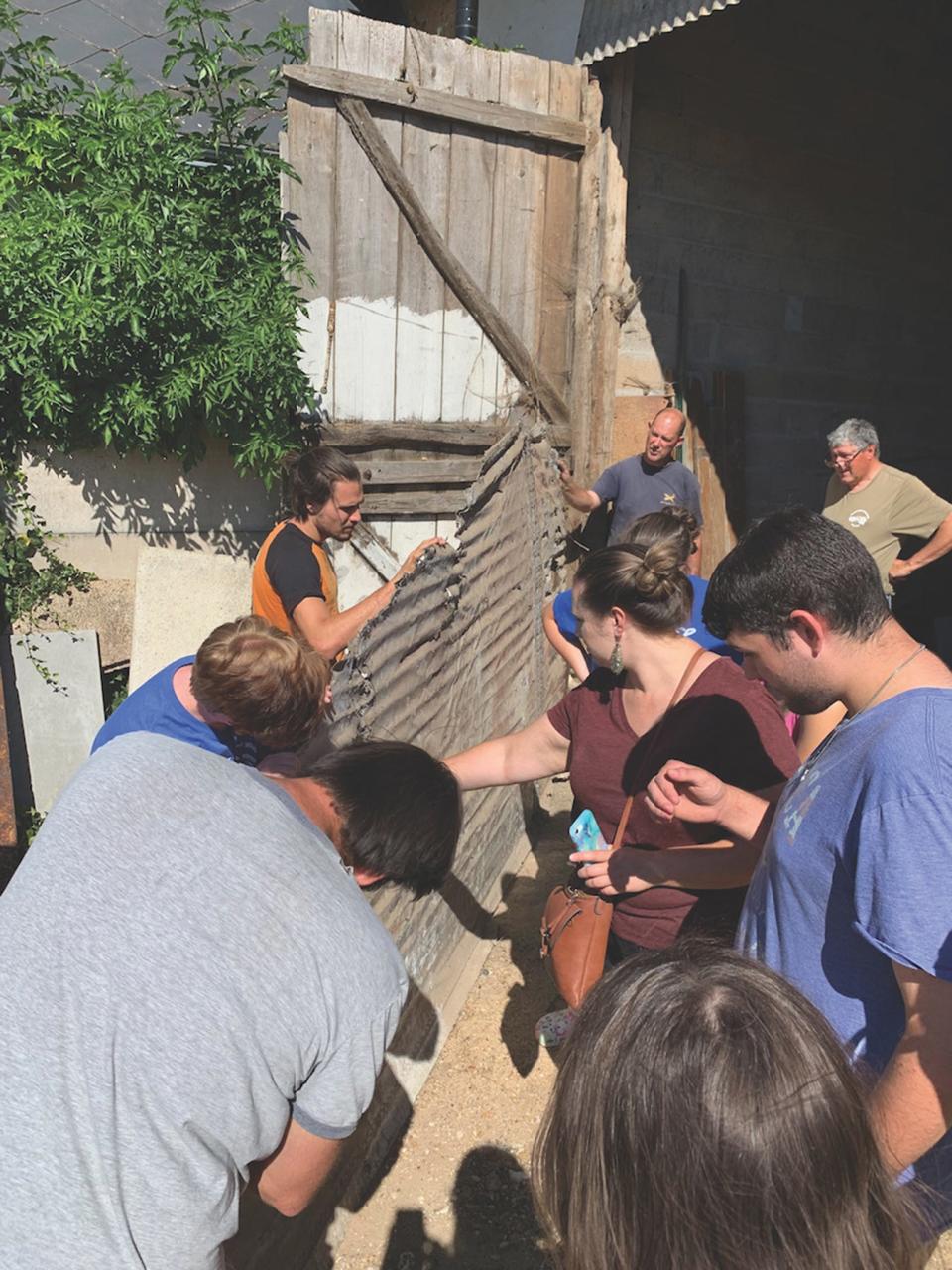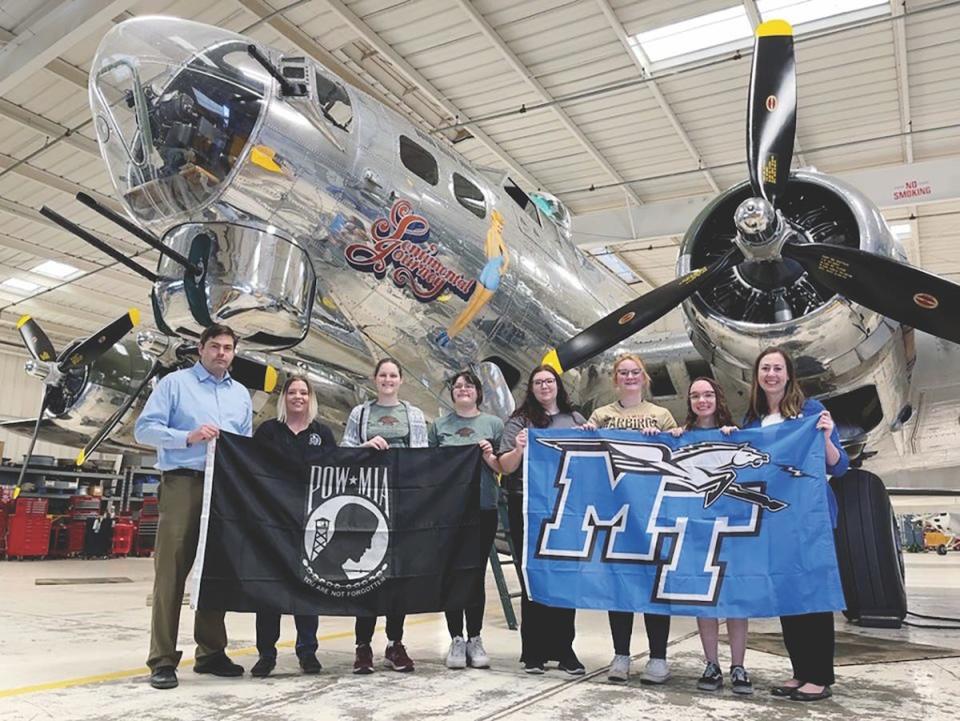MTSU Mondays: Students seek to repatriate remains at WWII crash site in France
Middle Tennessee State University students and faculty have been working to help repatriate the remains for what the U.S. Department of Defense estimates as over 81,000 American service personnel who are unaccounted for from past conflicts — about 79,000 of them from World War II.
MTSU faculty and students have been contributing to this effort for the past three years, excavating at a B-17 aircraft crash site in France. Led by MTSU Research associate professor Tiffany Saul, the Forensic Aviation Archaeology study abroad program allows students to learn forensic archaeology field methods and actively participate in efforts to recover and repatriate unaccounted-for crew members from the WWII crash.
Saul and co-director Adam Fracchia first began planning the MTSU project in 2019 as a collaboration with the Defense POW/MIA Accounting Agency. The DPAA’s objective is to provide “the fullest possible accounting for our missing personnel to their families and the nation.”

MTSU’s first partner mission was set to take place in the summer of 2020, with MTSU students registered to participate in the course and travel to France for a six-week field training and cultural experience. When the COVID-19 pandemic disrupted travel, educational opportunities, and everyday life, this program was no exception. The U.S. government suspended field recovery missions for the agency, and the 2020 MTSU field season was canceled.
Saul and Fracchia persevered, continuing to plan for summer 2021. Though international travel was still limited, the field project moved forward. The MTSU team included two field assistants, then-student Cole Buffalini and alumna Tabatha Wadford.
The project held special meaning for Wadford, a U.S. Army veteran.
“The opportunity to be part of the mission of bringing fallen service members home is a great honor and responsibility,” Wadford said. “The treatment of war dead has evolved through each of the United States’ conflicts, but when I served in the Army, we made a vow to never leave a fallen comrade. This program has helped me to continue that promise for the generations that came before.”

The rest of the field crew was composed of international volunteers who were already in Europe, making travel to the field site possible. Volunteers from France, Spain, Switzerland, and Austria joined in the nine-week excavation.
One of those volunteers was Morgane Durieux, an archaeology graduate student from Bordeaux Montaigne University in France. Durieux followed up her time in the field as a volunteer by visiting the U.S. for the first time in spring 2022 to help prepare students for the following summer in France. She served as the project’s translator in 2022 and 2023 and continues to collaborate with MTSU students and faculty.
Once the summer 2021 season was completed, plans for the next summer immediately began. In addition to hosting Durieux’s visit to MTSU, Saul and Fracchia prepared students with basic field methods training at a local archaeology site. Students practiced mapping and excavation strategies that they would use at the recovery site later in the summer.

In addition to these practical field methods, Saul and Fracchia felt it was important that students understand more about the aircraft they would be working with in France. They connected with the Commemorative Air Force Museum in Mesa, Arizona, where Sentimental Journey, one of only a handful of flightworthy B-17s, is maintained. The MTSU team was invited to tour the museum and was allowed to explore the aircraft.
Students also learned about the equipment that was used on the B-17 historically, as well as typical flight crew uniforms and rations. The CAF volunteers spent two days providing tours and demonstrations for students. The visit culminated in a public event hosted by CAF that allowed the team to share more about MTSU’s project and its goals with the Mesa community.
With training complete, the MTSU team departed the U.S. in July 2022 to join another group of international volunteers for the second field season at the site. Over the six-week program, students and volunteers lived and worked together.
This unique opportunity for both professional and cultural exchange allowed MTSU students to learn more about historic archaeology from an international perspective. The field program also provided international students with an opportunity that is uncommon in France.
Saul’s experience as a forensic anthropologist and Fracchia’s expertise in historic archaeology has allowed them to build an educational experience that lets students explore careers in forensic archaeology and international humanitarian service.
They have encouraged students to look beyond the artifacts and field methods and consider the impact the work has on the local community and the collective memory and memorialization of the events of World War II.
Read the full story about the effort and student impacts at mtsunews.com.
MTSU Mondays content is provided by submissions from MTSU News and Media Relations.
This article originally appeared on Murfreesboro Daily News Journal: MTSU students to repatriate remains at WWII crash site in France

